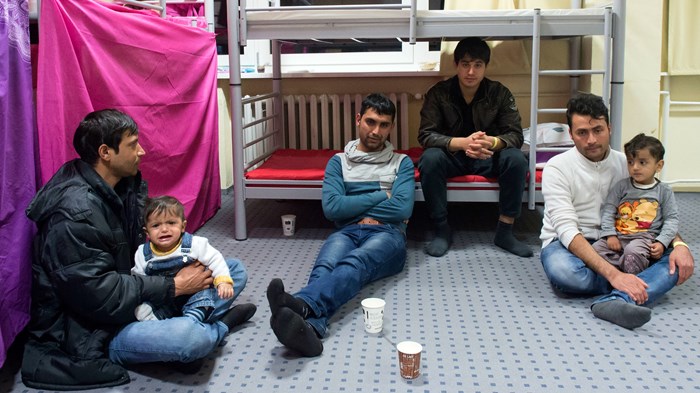
As the million-plus refugees who fled to Germany last year settle into packed group homes and culture-clashed neighborhoods, Christian migrants face ongoing harassment from the Muslims they live alongside.
Open Doors Germany reported Monday that three-quarters of resettled Christian refugees—as many as 40,000 people—had experienced repeated attacks due to their faith.
The ministry surveyed 230 refugees, most of them men in their 20s who converted to Christianity from Islam in their home countries.
Respondents told of insults, threats, violence, and sexual abuse; 86 said they had suffered bodily harm from fellow refugees and staff at the resettlement centers.
“These figures are just the tip of the iceberg,” stated Open Doors, which conducted the survey with several partnering organizations in the country.
Germany’s refugees bring their religious tensions with them. Christians make up a small percentage of asylum-seekers from countries like Syria, Iraq, and Afghanistan. Surrounded by Muslims and their religious practices—including the daily prayers, announced across the centers—Christians stick out as the exception, becoming easy targets for mockery and worse offenses.
Open Doors and its partners are lobbying for separate resettlement areas to protect Christians and other religious minorities, like Yazidis, and better training for security staff to help keep the peace. Germany, though, does not currently register refugees’ religious affiliation.
“Many Christian refugees are frightened of facing more difficulties if they report incidents,” the group said. “Others have given up all hope of receiving help.”
Open Doors’s new report follows a string of horror stories collected from Christians resettled in Germany, from a Christian convert beaten unconscious to a family who returned to Iraq to escape abuse from fellow refugees.
The country’s two largest denominations—Lutheran and Catholic—and the government “maintain that there are isolated incidents of attacks against Christians,” but not the tens of thousands being claimed by groups like Open Doors, according to German news station Deutsche Welle (DW).
Gottfried Martens, a Berlin pastor profiled by CT in 2012 for his ministry to Iranian refugees in the German capital, has been one of the most outspoken voices for separate accommodations for Christians, citing hundreds of cases of violence in his region alone.
“The paradigm of the isolated incident must stop,” he told DW.
In March, German think tank Konrad Adenauer Stiftung published an analysis titled “Christians Under Pressure?” While the paper affirmed Open Doors’s ongoing concerns over persecution among refugees, it questioned relying on subjective accounts rather than fuller empirical data. It also brought up exacerbating factors like close quarters and psychological stress.
Other critics accuse Open Doors and its partners of downplaying violence against Muslims. The Washington Postreferenced an an Amnesty International release “documenting assaults, harassment, and exploitation of refugees in reception centers in Europe—including in Germany—that did not differentiate between violence targeting Muslim or Christian refugees.”
Germany has taken in more refugees than any other country in Europe, and the resulting demographic shift, particularly the influx of Muslims, hasn’t come easy. At the start of this year, a wave of sexual assaults in Cologne was blamed, at least in part, on Muslim refugees.
For evangelicals in Germany, these new neighbors also offer a major mission opportunity. A Hamburg pastor reportedly conducted a mass baptism on May 4—Ascension Day—for 80 converts from Iran and Afghanistan. The Stream writes:
Albert Babajan, the pastor who carried out the ceremony, is said to have converted 196 Muslims in 2016. He says he expects the number to grow to 500 by the end of the year.
As CT previously reported, refugee conversions can be dubious, since political factors can influence motivations. Some refugees believe they have a better chance at asylum if they become Christian; forcing them to return to places like Iran and Afghanistan—where converts can face the death penalty—would threaten their lives.
CT has followed the ongoing refugee crisis in the Middle East and Europe as well as efforts to resettle refugees in the United States. For our March cover story, senior news editor Jeremy Weber reported from Greece and Iraq, where Christians are helping refugees fleeing ISIS violence in Syria.
In other coverage, CT explained why so few Christian refugees from Syria have made it to the States, evangelical attitudes toward the current wave of refugees, and how Christian welcome makes for beautiful gospel witness.

Support Our Work
Subscribe to CT for less than $4.25/month


















